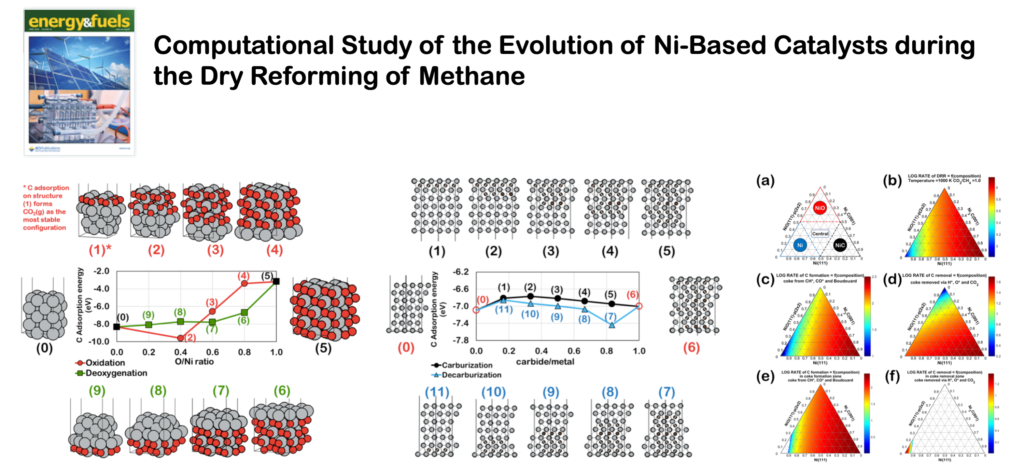
The study uses density functional theory (DFT) calculations to determine thermodynamics and reaction mechanisms of elementary reactions, and the ratings concept is introduced previously as an evaluation tool for the dry reforming reaction of methane (DRR) catalyst. It is found that, to become coke-resistant, the surface should contain less than 10% of carbide, whereas more than 75% of metallic surface is needed for the catalyst to be out of the coke formation zone, and to enter the coke removal zone, up to 80% of the metallic surface is required.
Read this research article: https://pubs.acs.org/doi/10.1021/acs.energyfuels.9b04350
